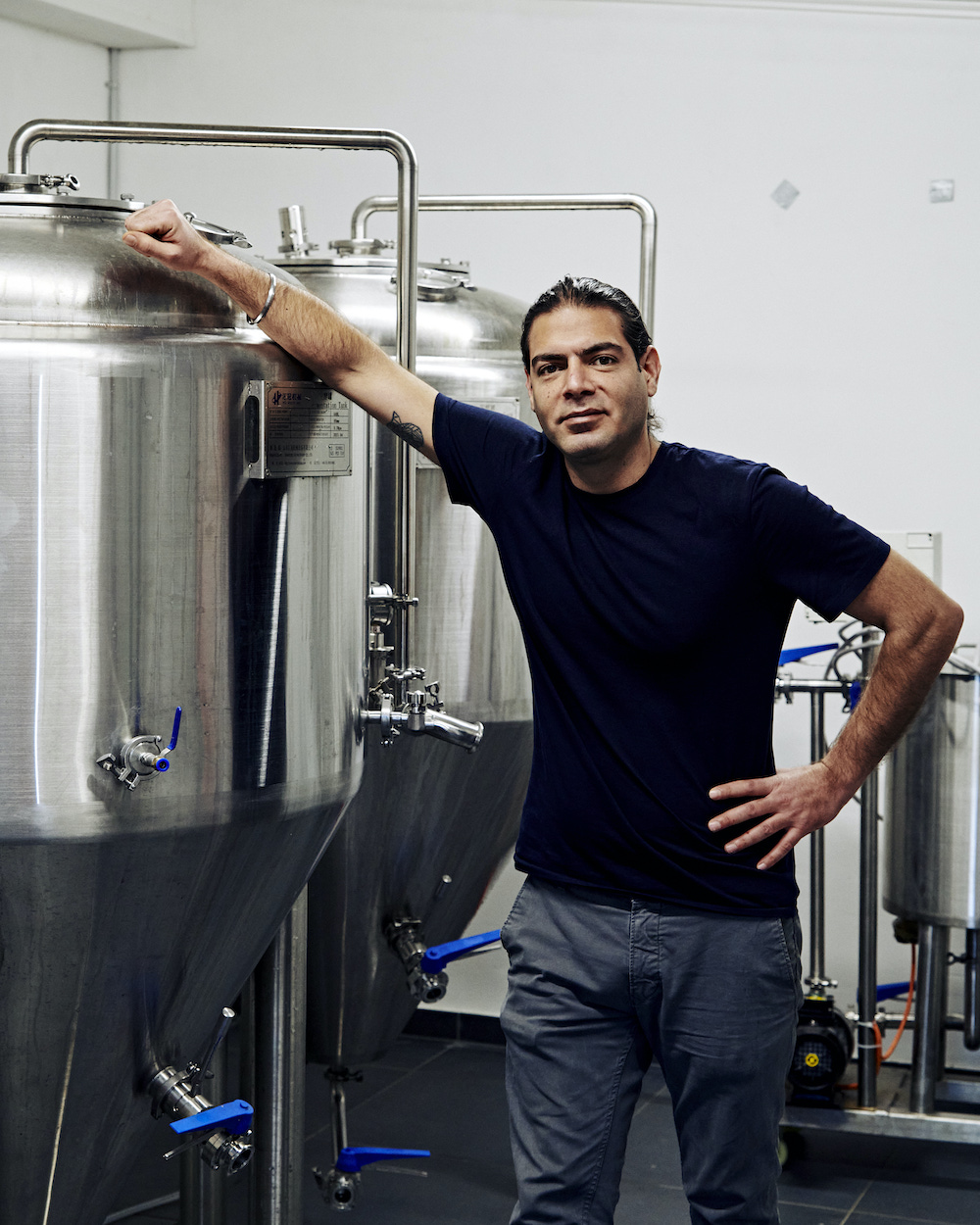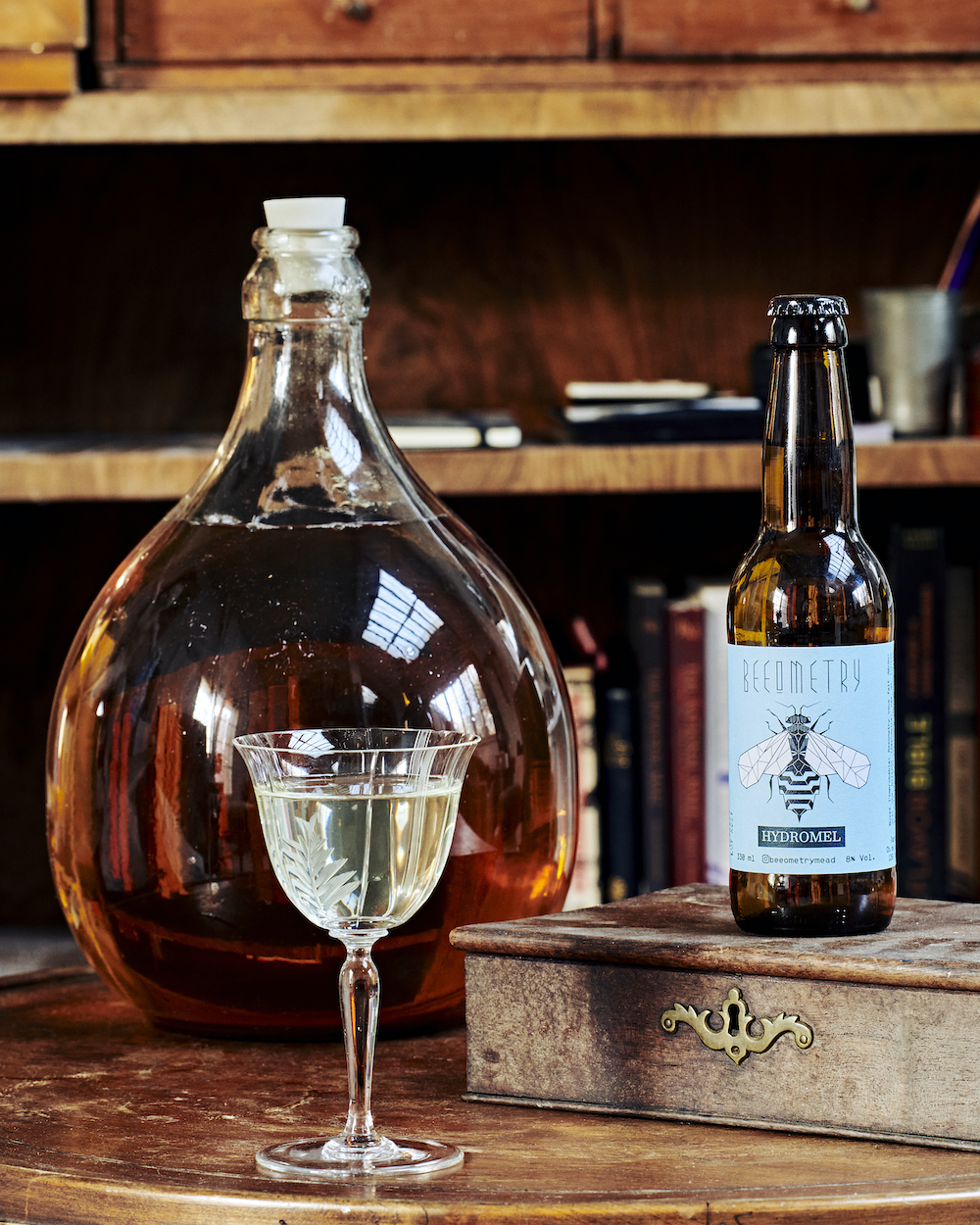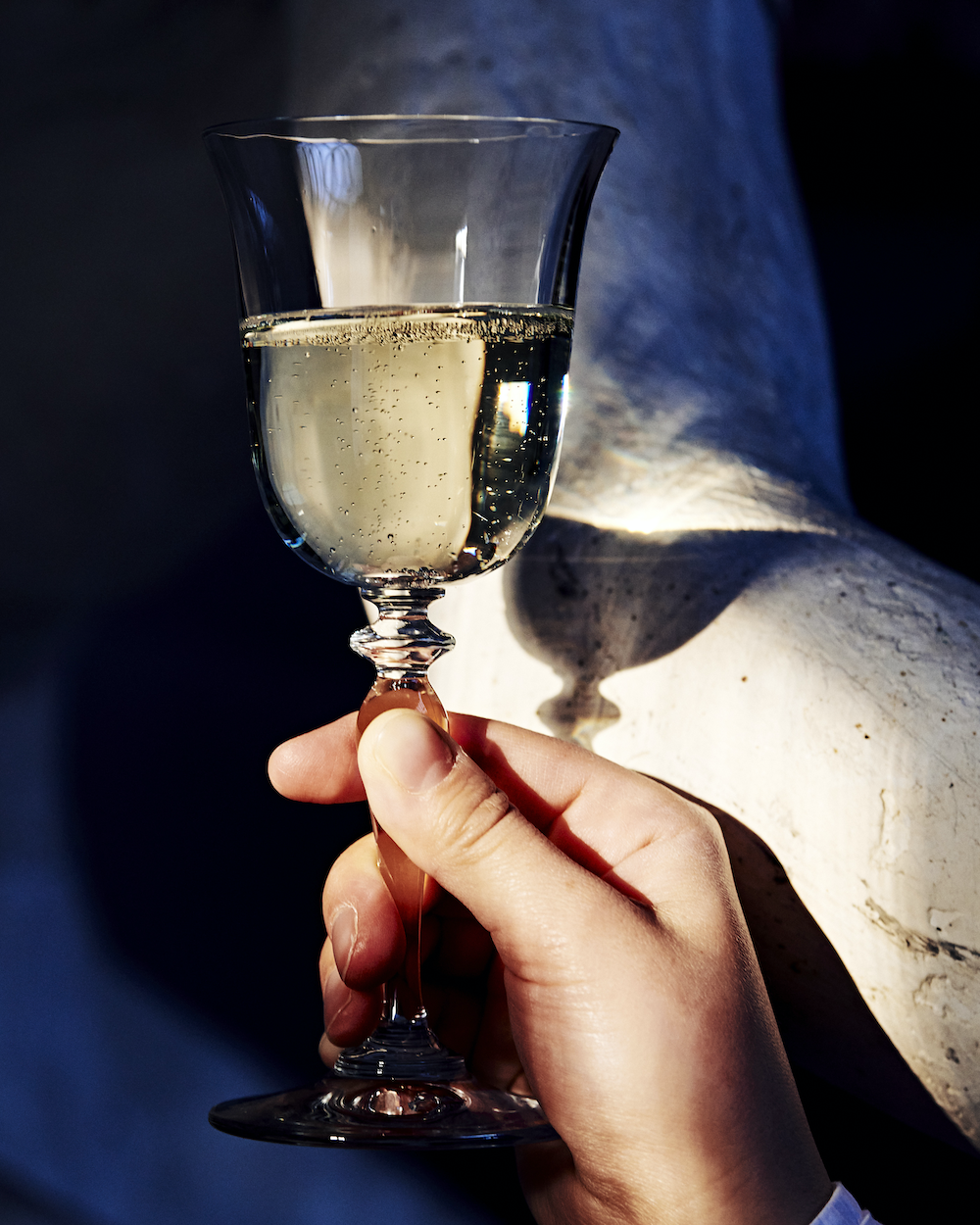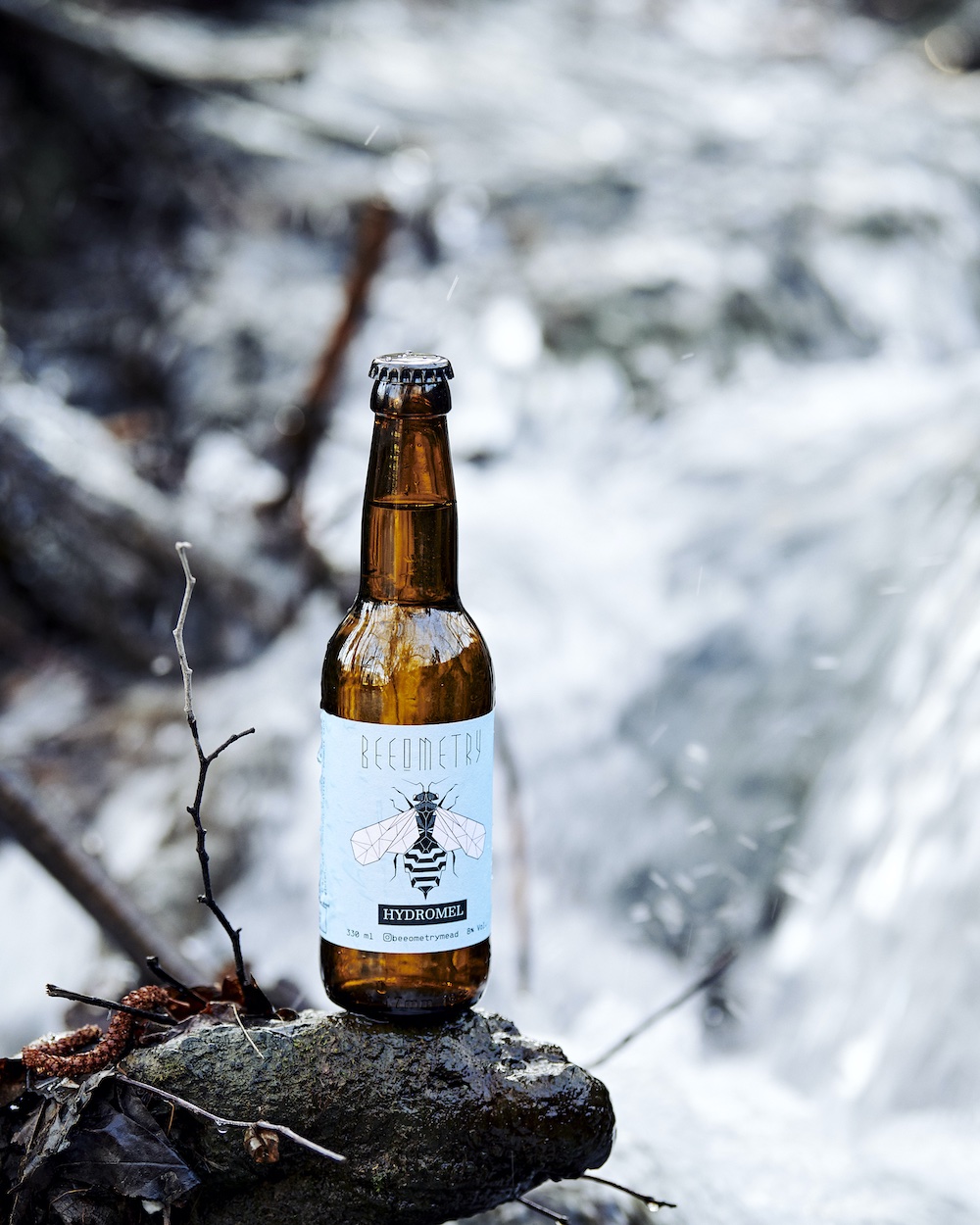Commitment is at the heart of their business. These men and women are inspired by the world to act differently and sustainably, making their environment a channel for expression, creativity, innovation and solidarity. Finance, culture, crafts, industry and the media are just some of the fields embodied by these personalities, who have agreed to be in cahoots with us for a meeting to share their universe.
Kamran Marwah is the founder of BEEoMETRY, a craft mead brewery in Geneva. After graduating from the Ecole hôtelière de Lausanne, he embarked on an international career in the hotel business in Europe and India, where he became banqueting manager at a hotel where many weddings were held. It was when one of his customers decided to treat his guests to mead at his wedding that Kamran discovered “the oldest alcohol in the world”, and was immediately hooked. In 2018 he secured an apprenticeship with Frank Golbeck, pioneer of the Southern California mead renaissance and founder of Golden Coast Mead. Frank quickly becomes a friend and mentor, generously sharing his know-how and expertise with Kamran. With his in-depth knowledge of modern mead production methods, he returned to Switzerland in 2020 and founded BEEoMETRY in 2021 with the ambition of producing a quality mead to raise local awareness of this ancestral beverage, which reflects the inestimable value of the role of bees and the work of beekeepers.
We tasted it and it’s delicious! Refreshing, subtle and original. See you every Thursdays from 4 to 8:30 p.m. at Marché des Grottes if you’d like to try it yourself.
Mead is an alcoholic beverage made from the pure fermentation of honey. It’s also the oldest fermented beverage. Mead-making dates back to the Neolithic period, 9,000 years BC. Wine did not arrive until 4,000 years later. Also known as the nectar of the gods, it is thought to have been consumed by man long before, when mead was “made” naturally in flooded beehives.
It’s a drink made from water and honey, and is thought to have originated in China. Traces of mead can also be found in Egypt and, above all, in Greece, whose people gave it its letters of nobility; mead was the sacred drink of the Olympian gods.
In regions where vines thrived, wine overtook mead over the centuries, but in northern regions, mead held out until the 16th century, when it gave way to beer. It was revived in the United States and has been booming for the past 5 years, and BEEoMETRY intends to make it more widely appreciated by offering a sustainable alternative to beer and other alcoholic soft drinks.
“Like grapes, honey is the profound reflection of a country, a region, a terroir.”
Kamran Marwah
The ecological dimension of the project, in particular through the promotion of the essential role of bees in the ecosystem, is central. In concrete terms, the 27,000 liters of mead produced each year are the result of the pollination work of over 8 million bees! BEEoMETRY does its best to create a mead that celebrates and highlights the indispensable work of bees. By transforming the raw material that is honey, they pay tribute to and enhance the value of the bees that created it. Their work has a positive impact on the environment through pollination and plant fertilization. So, by enjoying BEEoMETRY mead, consumers are helping to support beekeepers, increase biodiversity and preserve the health of the soil and the local ecosystem.
BEEoMETRY offers a sparkling mead that can be enjoyed both in bottle and on draught.
To provide for their future honey needs, they started building their own apiary. Their goal is a hundred BEEoMETRY beehives that will help enrich Geneva’s flora by producing 100% local honey. They also plan to plant melliferous trees, such as lime and chestnut, as part of the City of Geneva’s greening plan.
At the heart of the BEEoMETRY project is the desire to create a mead from the Swiss terroir, reflecting the country’s richness, diversity and natural resources. We’d like to diversify our offer and propose a new product to our customers: GRTA mead with 100% Genevan honey. To achieve this, we need not only to increase our fermentation capacity, but also to start planning an in-house honey production line. To achieve these goals, BEEoMETRY is launching a crowdfunding campaign to raise 50,000CHF via the
SIG Impact platform
to support the development of the project and enable all participants to benefit from unique rewards.
The campaign ends in a few days. To support them, go to
here
!
Kamran was in cahoots with us a few days ago to talk about him and BEEoMETRY.
Karman, what made you fall in love with mead?
For a number of reasons. First, because I found it delicious! Secondly, for its sustainable dimension, mead has a much lower impact on the environment than beer or wine, because it doesn’t depend on monoculture or intensive agriculture. Mead depends on a healthy plant ecosystem, and this can be as simple as a patch of forest where bees are placed to pollinate and extract honey from the plant mass, thereby helping to improve biodiversity and soil health. Mead is also a beverage steeped in history, legends and myths, which can be found in many cultures and geographies.
Was it really the cultural heritage aspect that interested you?
Absolutely, for example the expression “honeymoon” comes from mead. When Vikings married, they were given mead for a month to promote fertility, appease the gods and receive the gods’ grace after the wedding. That’s one of the thousand stories I can tell you!
Where does your commitment to planet-friendly business come from?
I’ve always wanted to be an entrepreneur, and I believe that sustainability is an integral part of business. We need to find a business model that really has a positive impact at its core. In my opinion, this is the future of business. It’s not easy to do, but I think mead is one of the activities that regenerates the planet, because the more mead we consume, the more bees we’ll have, and there’ll never be too many, it’ll always be positive.
The adjective “regenerative” that you used is very important, I think! Companies must now focus on “net-positive” strategies to build a restorative and regenerative economy – it’s a crucial issue!
What challenges do you face in your business?
My customers demand local honey. It’s a challenge I’m trying to meet. Geneva honey is very expensive, so the challenge is to succeed in offering a product that remains affordable, using local honey. I’m in the process of forging links with local producers and then the longer-term vision is to produce our own honey. So there’s also this challenge of gently converting ourselves into beekeepers in addition to being hydromeliers and starting to produce the raw material we need to make alcohol, just like the winemakers.
Another challenge was that mead has a thousand facets: like beer or wine, it can be more or less alcoholic, with or without bubbles, with or without fruit and spices, fortified or not, very sweet or very dry. There really are a thousand avenues to follow and I’ve chosen to make what’s called a “mead of thirst”, a style of mead that originated in Southern California where it’s very hot. I’d like to propose this as an alternative to beer, which is also glutene-free, so it doesn’t bloat the stomach, and which you can easily drink in the sun for an aperitif and drink 2 or 3 without getting sick. The idea was also to offer it on draught, at the filler, both to increase the visibility of our product and because it’s more rational in terms of packaging and better for the environment.
What anti-sustainable gesture do you find hard to give up?
I think it’s having everything in bottles. It’s greener to have cans, both in terms of transport and recycling, and it costs less too. There are many advantages to having cans, but it’s hard to change consumer perception: a can looks “cheaper” than a bottle, and people are willing to pay more for a glass bottle. So I’m finding it hard to give up the bottle, but I’m going to have to do it soon, and it’s going to involve a really nice can design.
And personally?
Personally, I’d say I don’t carpool enough, as I’m still too often alone in the car.
What should tomorrow’s world look like?
Above all, a world where profits aren’t the ultimate goal, a world where there’s no excessive capitalism, where the idea isn’t to make money just for the sake of making money. A world where the primary notion is that doing good is good for business: all the good the company does is the fuel it needs to grow.
Thank you very much Karman!
Thanks Marie!
We’d love to hear your inspiring stories! If you’d like to try your hand at the Proust questionnaire, or share your experience, commitment, tips or gripes, go to the “Share with us ” discussion forum on the La Mèche platform, here:




